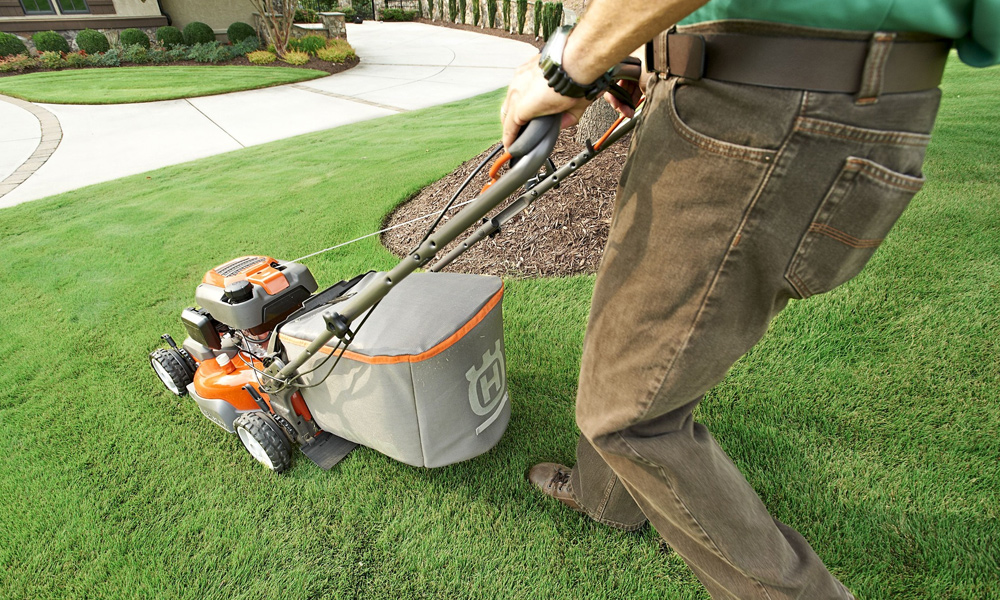The Ultimate Lawn Mowing Guide for Beginners
A Comprehensive Guide to Mowing Your Lawn with Confidence
Embarking on your lawn mowing journey can be a bit overwhelming, especially for beginners. This comprehensive guide will provide top tips, answer frequently asked questions, and help you understand the differences between commercial and residential lawn mowers to make the right choice for your needs. Additionally, we’ll cover essential lawn care techniques and discuss essential garden tools, including the best gas trimmers, that contribute to a healthier, well-maintained lawn.

Top Tips for Lawn Mowing Beginners
- Choose the right mower: Explore the different types of lawn mowers available, such as push mowers, self-propelled lawn mowers, electric lawn mowers, and riding lawn mowers, and select one that suits your yard size and terrain.
- Perform regular maintenance: Follow top lawn mower maintenance tips to keep your mower in optimal condition, prolong its lifespan, and ensure peak performance.
- Mow at the right height: Different grass types require different mowing heights. Generally, mow your lawn at a height of 2.5-3 inches to promote healthy root growth and prevent weed growth.
- Don’t mow wet grass: Mowing wet grass can cause clumping and uneven cutting. Wait until the grass is dry before mowing to achieve a cleaner and more even cut.
- Change mowing patterns: Alternate your mowing pattern each time you mow to prevent soil compaction and promote even grass growth.
- Use sharp blades: Keep your lawn mower blades sharp to ensure clean cuts, which helps the grass recover more quickly.
- Practice safety: Wear protective gear, such as gloves, long pants, and closed-toe shoes, when mowing. Also, follow lawn mower safety features and guidelines to prevent accidents.
Essential Lawn Care and Mowing Techniques
- Grass type identification: Identifying your grass type is crucial for proper lawn care. Different grass species have different mowing heights and care requirements.
- Mowing frequency and grass growth: Grass growth depends on various factors, including temperature, rainfall, and fertilization. Be prepared to adjust your mowing frequency according to the growth rate of your grass.
- Overseeding: Overseeding is the process of adding new grass seeds to your lawn to fill in bare spots and improve its overall appearance. Timing is critical when overseeding, as the new grass seeds require proper conditions to germinate and grow.
- Fertilization: Proper fertilization is essential for maintaining a healthy, green lawn. Understand your grass type and soil conditions to determine the right type and amount of fertilizer to use.
- Watering: Efficient watering is key to a healthy lawn. Water your grass deeply and infrequently, focusing on the root zone, rather than frequent shallow watering.
- Weed and pest control: Regular mowing, proper fertilization, and correct watering practices can help prevent weeds and pests. However, you may need to use herbicides and pesticides for targeted control of specific problems.
- Aeration: Aeration involves removing small plugs of soil from your lawn to reduce soil compaction and promote root growth. Aeration is typically performed once or twice a year, depending on your lawn’s needs.
- Dethatching: Thatch is a layer of dead grass and debris accumulating between grass and soil. Dethatching helps to remove this layer, allowing water, nutrients, and air to reach the grass roots.
Choosing the Right Lawn Mower: Commercial vs. Residential

Before purchasing a lawn mower, it’s essential to consider the differences between commercial and residential lawn mowers. Here are some factors to help you make the right choice:
- Yard size: Commercial mowers are typically designed for larger yards, while residential mowers are better suited for smaller yards. Check our recommendations for the best lawn mower for small yards if you have a limited space.
- Terrain: Commercial mowers often have more power and better handling for tackling slopes, uneven ground, or obstacles. For flat and even terrain, a residential mower should suffice.
- Frequency of use: If you plan on using your lawn mower frequently or for extended periods, a commercial mower with a more durable design may be a better investment.
- Budget: Commercial lawn mowers generally have a higher upfront cost than residential models. Consider your budget when making your decision but also keep in mind the long-term costs of maintenance and repairs.
- Type of mower: Different types of lawn mowers are suitable for various needs. For example, a corded electric lawn mower may be perfect for a small yard, while a battery-powered mower offers more mobility for larger properties.
For more information and guidance on choosing the right mower, refer to our lawn mower reviews and buying guides. Additionally, check out our articles on electric vs. gas lawn mowers and the evolution of lawn mowers for more in-depth information.
By following this lawn mowing guide for beginners, you’ll be on your way to achieving a healthy, well-maintained lawn. Remember to invest in the right equipment, practice safety, and adhere to proper mowing techniques for the best results. Happy mowing!